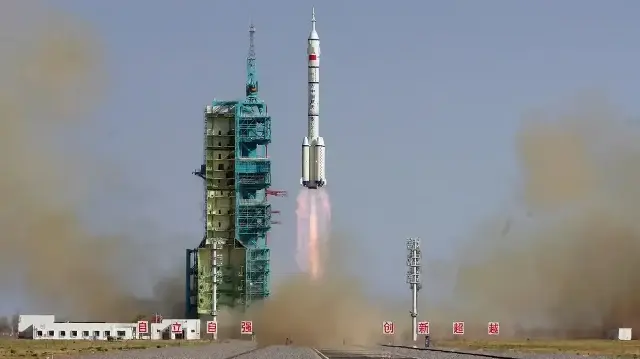China to launch Shenzhou-22 spacecraft following debris-related delay

China will launch the Shenzhou-22 spacecraft on Tuesday from the Jiuquan Satellite Launch Center, following the recent return of the Shenzhou-21 mission that was delayed nine days due to suspected space debris impact. The new spacecraft will dock with China's Tiangong space station.
China is preparing to launch the Shenzhou-22 spacecraft on Tuesday as part of its ongoing manned space program, according to an announcement from the China Manned Space Agency. The mission will originate from the Jiuquan Satellite Launch Center in northwestern China and represents the latest advancement in China's ambitious space station program, coming shortly after the completion of the previous crewed mission.
Previous Mission Complications
The Shenzhou-21 spacecraft recently returned to Earth with its three-person crew last week, concluding a mission that extended nine days beyond its originally scheduled duration. The China Manned Space Agency had previously disclosed on November 5 that the crew's return journey required postponement following a suspected impact from small orbital debris on the Shenzhou-20 spacecraft. Agency officials determined the spacecraft's condition "does not meet the requirements for the astronauts' safe return," necessitating the extended orbital stay.
Mission Details and Biological Experiments
The Shenzhou-21 mission represented China's sixth crewed spaceflight, transporting three taikonauts—including the country's youngest astronaut to date—along with four laboratory mice to the Tiangong space station. The rodent specimens returned safely to Earth with the crew last week, completing biological research objectives conducted during the orbital mission. These experiments contribute to China's broader scientific investigations into the effects of spaceflight on living organisms.
Upcoming Mission Objectives
Following its scheduled launch on November 25, the Shenzhou-22 spacecraft will autonomously dock with China's indigenously developed Tiangong space station, continuing the permanent habitation and scientific utilization of the orbital facility. The mission demonstrates China's commitment to maintaining a continuous human presence in space despite technical challenges encountered during previous missions, reinforcing the country's position as a major spacefaring nation.
Reklam yükleniyor...
Reklam yükleniyor...







Comments you share on our site are a valuable resource for other users. Please be respectful of different opinions and other users. Avoid using rude, aggressive, derogatory, or discriminatory language.